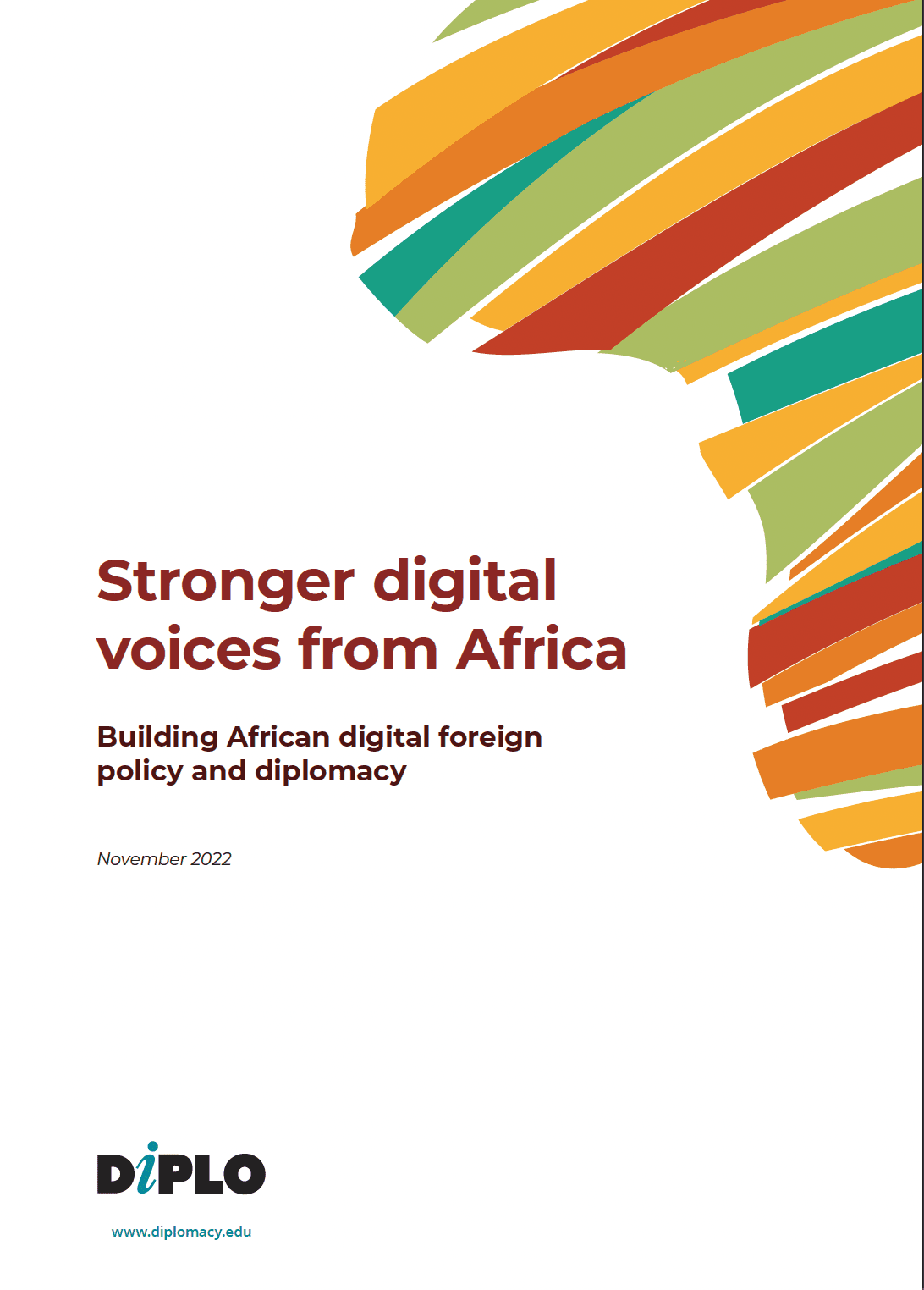
African involvement in the Internet Governance Forum
Read full report Stronger digital voices from Africa: Building African digital foreign policy and diplomacy.
Annual meetings of the Internet Governance Forum (IGF) offer stakeholders from governments, businesses, the technical community, academia, civil society, and international organisations an opportunity to engage in open discussions on internet and digital policy topics they find relevant. While the IGF is not a decision-making body, forum discussions help inform decisions taken elsewhere.
IGF meetings are open to anyone interested. This, however, does not mean that anyone can indeed participate. Issues of capacities and costs tend to pose challenges to actors from developing countries and LDCs in particular, although the IGF itself and various organisations have put in place programmes to enhance participation from such actors (not only in terms of funding but also awareness raising and capacity development).
Participation in IGF meetings
An analysis of IGF participation data between 2016 and 2021 indicates that the participation of African actors was low in 2016, and considerably increased, but oscillated, between 2017 and 2021 (Figure 9). Venue matters and this is likely one of the reasons behind the low number of African participants in the IGF 2016 meeting. With the meeting held in Mexico, African stakeholders found it more difficult to attend (financial resources typically being a constraint preventing actors from developing countries and LDCs from participating in meetings taking place in remote locations). (The chart also reflects another IGF reality: The region where the physical meeting is hosted has the largest number of participants.)
Figure 9. Participation in IGF meetings, by regional group (year-by-year data).
When compared with participation from other regions,1The IGF uses the following regional groups: Africa, Asia-Pacific, Eastern Europe, Latin America and the Caribbean (GRULAC), and Western Europe and Others (WEOG). Details on the composition of these groups are available on the UN website. Representatives of intergovernmental organisations (IGOs) are not assigned to any regional group. Africa tends to occupy a middle position. The region ranked second in 2017, 2018, and 2019, and third in 2020 and 2021 (Figure 9).2IGF-related statistics in this study are based on data provided by the IGF Secretariat. Aggregated data for all six IGF meetings we have looked at place Africa as the third best-represented region, after the Western Europe and Others Group (WEOG) and Eastern Europe (and followed by Asia-Pacific and the Latin America and Caribbean Group (GRULAC)) (Figure 10).3Between 2016 and 2019, the IGF Secretariat collected data related to onsite participation; in 2020 the entire meeting was held completely online (so data refers to registered online participants), while in 2021 – when emphasis was put on hybrid participation modalities – information was collected for both onsite and online participants.
Figure 10. Participation in IGF meetings between 2016 and 2021, by regional group (aggregated data).
Looking at African participation only, civil society4It is worth noting that the civil society group also includes academia and research communities. has been the group with the highest representation among all stakeholder groups over the years (Figure 11). This is also consistent with overall IGF participation trends, which show that civil society is usually the group with the highest representation (Figure 12).
Figure 11. African participation in IGF meetings, by stakeholder group.
Figure 12. Participation in IGF meetings between 2016 and 2021, by stakeholder group (aggregated data).
Speakers in IGF meetings
Besides general IGF participation, we also looked at the involvement of African stakeholders in discussions, as speakers in IGF workshops. Between 2018 and 2021, the highest number of Africa-based speakers was recorded in 2018 (201) and the lowest in 2020 (35).
In a ranking of speakers by region, Africa positions itself only in third (2018, 2019, and 2021) and fourth place (2020) (Figure 13). Aggregated data for all four IGF meetings place the region as the third by number of speakers, after WEOG and Asia-Pacific, and ahead of GRULAC and Eastern Europe (Figure 14).
Figure 13. Distribution of IGF speakers by region (year-by-year data).
Figure 14. IGF speakers by region, IGF 2018–IGF 2021 (aggregated data)
In terms of distribution by stakeholder groups, civil society is again in the lead, as the group with the largest number of speakers from Africa (Figure 15). This too is consistent with overall IGF data: between 2018 and 2021, over 50% of speakers were civil society representatives (Figure 16).
Figure 15. IGF speakers from Africa by stakeholder group, IGF 2018–IGF 2021 (year-by-year data).
Figure 16. IGF speakers by stakeholder group, IGF 2018–IGF 2021 (aggregated data).
Actors organising sessions at the IGF
We also looked at the involvement of African actors in the organisation of workshops at annual IGF meetings between 2016 and 2021. Workshops form the largest part of IGF meetings and are selected by the Multistakeholder Advisory Group (MAG) from proposals submitted by stakeholders from all over the world. They are sometimes co-organised by two or more entities.
Compared with other regions, African actors are not particularly active when it comes to hosting IGF workshops (Figure 17). When they do host workshops, this is mostly done by civil society actors, followed by the technical community and the private sector (Figure 18). This too is consistent with overall IGF data, showing a higher involvement of civil society in the hosting of workshops (Figure 19).
Figure 17. IGF workshop organisers by region, IGF 2016–IGF 2021 (year-by-year data).
Figure 18. Workshop organisers from Africa by stakeholder group, IGF 2016–IGF 2021.
Figure 19. Workshop organisers by stakeholder group, IGF 2016–IGF 2021.



